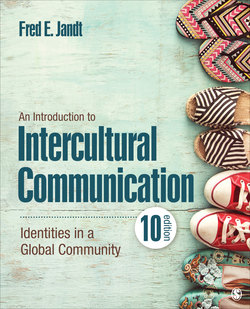Читать книгу An Introduction to Intercultural Communication - Fred E. Jandt - Страница 80
На сайте Литреса книга снята с продажи.
Focus on Culture 2.2 Benjamin Franklin’s Remarks on American Indians
ОглавлениеSavages we call them, because their Manners differ from ours, which we think the Perfection of Civility; they think the same of theirs.
Perhaps, if we could examine the Manners of different Nations with Impartiality, we should find no People so rude, as to be without any Rules of Politeness; nor any so polite, as not to have some Remains of Rudeness.… An Instance of this occurred at the Treaty of Lancaster, in Pennsylvania, anno 1744, between the Government of Virginia and the Six Nations. After the principal Business was settled, the Commissioners from Virginia acquainted the Indians by a Speech that there was at Williamsburg a College, with a Fund for Educating Indian youth; and that, if the Six Nations would send down half a dozen of their young Lads to that College, the Government would take care that they should be well provided for, and instructed in all the Learning of the White People. It is one of the Indian Rules of Politeness not to answer a public Proposition the same day that it is made; they think it would be treating it as a light manner, and that they show it Respect by taking time to consider it, as of a Matter important. They therefor deferr’d their Answer till the Day following; when their Speaker began, by expressing their deep Sense of the kindness of the Virginia Government, in making them that Offer; “for we know,” says he, “that you highly esteem the kind of Learning taught in those Colleges, and that the Maintenance of our young Men, while with you, would be very expensive to you. We are convinc’d, therefore, that you mean to do us Good by your Proposal; and we thank you heartily. But you, who are wise, must know that different Nations have different Conceptions of things; and you will therefore not take it amiss, if our Ideas of this kind of Education happen not to be the same with yours. We have had some Experience of it; Several of our young People were formerly brought up at the Colleges of the Northern Provinces; they were instructed in all your Sciences; but, when they came back to us, they were bad Runners, ignorant of every means of living in the Woods, unable to bear either Cold or Hunger, knew neither how to build a Cabin, take a Deer, or kill an Enemy, spoke our language imperfectly, were therefore neither fit for Hunters, Warriors, nor Counsellors; they were totally good for nothing. We are however not the less oblig’d by your kind Offer, tho’ we decline accepting it; and, to show our grateful Sense of it, if the Gentlemen of Virginia will send us a Dozen of their Sons, we will take great Care of their Education, instruct them in all we know, and make Men of them.”
Source: Quoted in Mott & Jorgenson (1936).
After reading the comments by Benjamin Franklin (see Focus on Culture 2.2), who do you think was being ethnocentric?
In contrast to ethnocentrism, Cultural relativism refers to the view that an individual’s beliefs and behaviors should be understood only in terms of that person’s own culture. It does not mean that everything is equal. It does mean that we must try to understand other people’s behavior in the context of their culture. It also means that we recognize the arbitrary nature of our own cultural behaviors and are willing to reexamine them by learning about behaviors in other cultures (M. N. Cohen, 1998).
